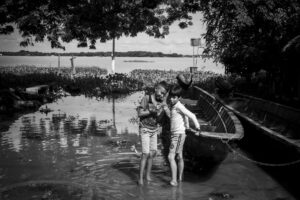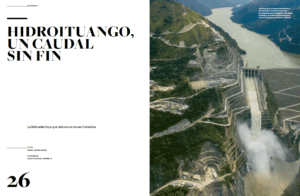Flames, flowers, coffins, bombed bridges, skies and clouds, photos of missing loved ones, mountains, sad looks, bare feet, bare souls.
For decades, war has left traces of the evident agony of a country. Women, indigenous groups, campesinos, and soldiers look out into the world as if in Macondian frames after a forced exile, a paramilitary massacre, or after an explosion caused by guerrilla groups; in search for loved ones, who disappeared by the hands of the Government or illegal groups, or after the clatter and death that hit men and city gangs leave behind.
In Colombia, the faces of horror from war also have the form of landmines, of the burden of solitude and pilgrimage, of burials and vigils in the countryside and cities. For more than half a century, the internal armed conflict in this country has left more than 220,000 dead, most of them civilians. The surviving victims look down upon seeing they have lost everything but know than sooner rather than later, they have to hold on to what war despite its horrors, has not taken from them: Hope. Suffering in the middle of grief and suffering among resisting forces, just like their parents and grandparents who lived through the violence of wars that have gone for thousands of days, and that have marked the history of Colombia for more than a century.
Seven million displaced, and 45.000 people disappeared exceed the figures of dictatorships and any war in the world. Victims of kidnapping who have stayed for up to 15 years in guerrilla camps; this only is known to happen in Colombia. Tears and blood have injured the skin of Colombians, who have learned to heal and forgive despite the actions of war perpetrated by their own Government, paramilitary or insurgent groups. The humblest, in remote areas far away from the cities where decisions are made, hold on to dancing, writing, color, and everything that symbolically can help them remember and honor those who were swallowed forever by this armed conflict. Candles invoke the lives of those who left and fresh flowers in graves and open fields remind us that beyond suffering, there will be a time to rest.
Katalina Vásquez G. Journalist.
[tg_grid_gallery gallery_id=»6256″ layout=»wide» columns=»3″]


